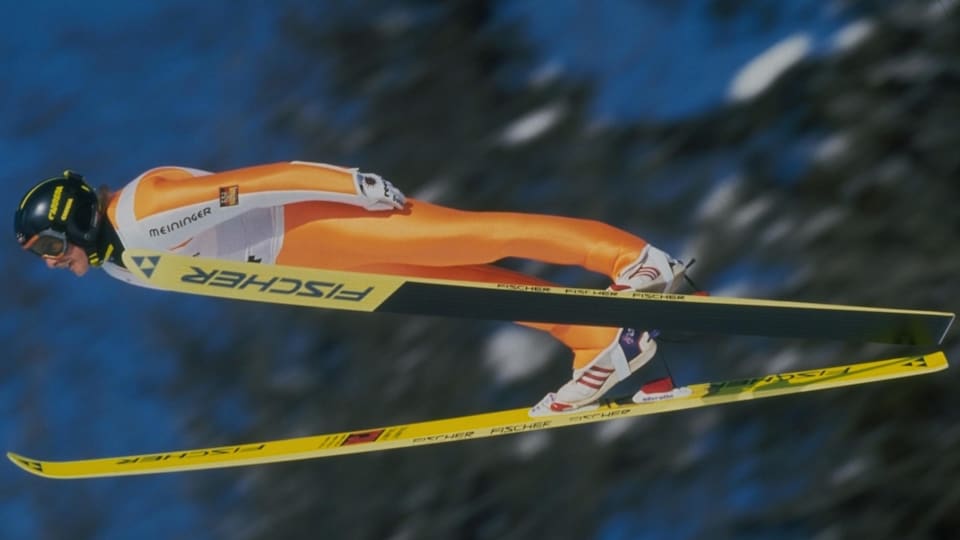
He had shone at the 1984 Winter Games in Sarajevo, taking a gold medal on the normal hill and silver on the large hill. At the age of 19, he seemed poised to become a huge star of world ski jumping.
He won the overall world cup in 1985 and then a series of world cup wins followed, plus a world title in 1989 and a world championship silver. Yet his Olympic performances hadn’t lived up to that fantastic debut in Sarajevo – ninth and 31st in Calgary in 1988, ninth and 33rd in Albertville four years after that, as well as a team fifth place in Albertville. As he came to Lillehammer, now aged 29 and with 12 years of gruelling competition in his legs, it was hard to imagine Weissflog returning to his Olympic winning ways. Maybe he was inspired by this final crack at gold. Maybe it was simply his time. Whatever the reason, Weissflog produced something extraordinary.
He started on the large hill, aware that many in the home crowd were hoping to see a victory for Norway’s Espen Bredesen. If that were not intimidating enough, Bredesen set an Olympic record with his first jump, soaring 135.5m. In the second round, though, Weissflog produced a stunning, and technically flawless, leap that was cheered by even the partisan crowd. Moments later, Bredesen leaped some 13m short of his first-round mark, and relinquished first place, and the gold medal, to Weissflog. He became the first Sarajevo champion to win a title in Lillehammer.
Two days later, the two men were reunited in the large hill team event. This time the final round saw Germany and Japan going for the gold medal, with the Japanese holding a clear lead. But while Weissflog produced another fantastic jump under pressure, this time going 133.5m, Japan’s Massahiko Harada could clear only 97.5m, handing Germany victory. It meant Weissflog took his second gold of the Games. He soon retired from the sport, moving into television commentary – and also running a hotel.
